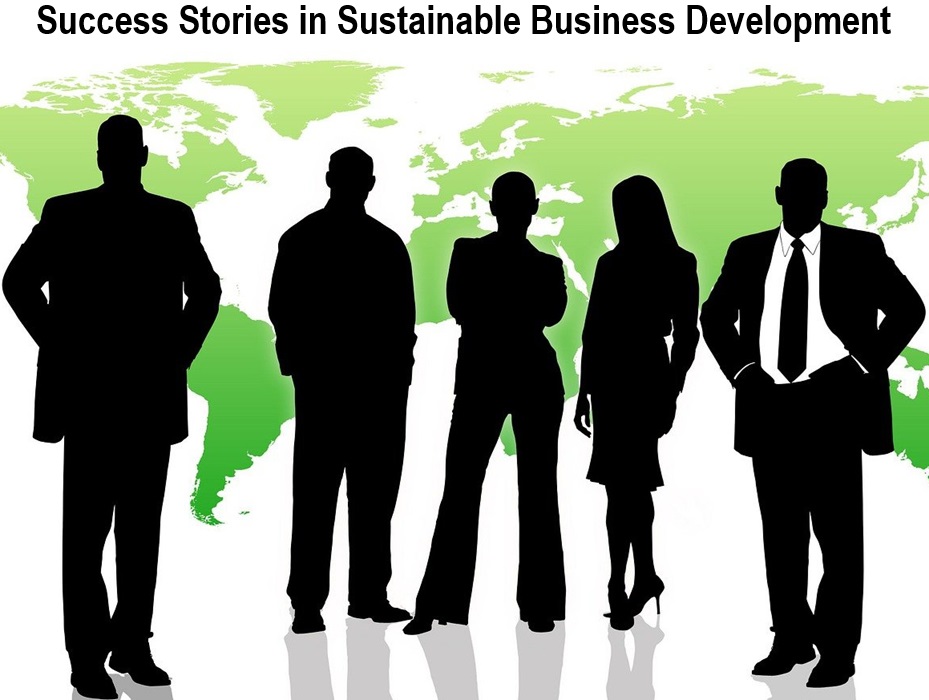With environmental concerns at the forefront of worldwide discussions, sustainable business development has emerged as a powerful force for positive change. Companies across various industries are demonstrating that economic success and environmental responsibility are not mutually exclusive. Let us explore some generic success stories that highlight how businesses, irrespective of their sectors, are leading by example in sustainable business development.
Commitment to Environmental Stewardship
● Carbon Neutrality
Forward-thinking businesses are embracing ambitious goals to achieve carbon neutrality. This involves not only decreasing carbon emissions but also offsetting any remaining emissions through initiatives such as renewable energy projects or supporting reforestation efforts.
● Circular Economy Practices
The adoption of circular economy practices is gaining momentum. Companies are reimagining product lifecycles, focusing on recycling, repurposing, and reducing waste. This approach minimises the environmental impact of production and consumption while fostering a more sustainable and regenerative economic model.
Social Responsibility and Ethical Practices
● Fair Labor Practices
Businesses are recognising the importance of fair labour practices throughout their supply chains. From ensuring safe working conditions to providing fair wages, companies are taking steps to uphold human rights and promote social well-being - a step towards sustainable business development.
● Community Engagement
Companies are investing in community development projects, supporting education, healthcare, and infrastructure initiatives to create positive, long-lasting impacts beyond their immediate business operations.
Sustainable Innovation
● Renewable Energy Integration
Companies are investing in and transitioning to renewable energy sources. By integrating solar, wind, or other clean energy solutions into their operations, businesses are not only reducing their environmental footprint but also contributing to the growth of the renewable energy sector.
● Efficient Resource Management
Sustainable businesses are prioritising efficient resource management. This includes optimising energy usage, water conservation, and minimising the consumption of raw materials. By implementing resource-efficient practices, companies are aligning their operations with long-term environmental sustainability.
Transparency and Accountability
● Eco-Friendly Product Lines
Leading companies are introducing eco-friendly product lines or integrating sustainability features into existing products. From packaging materials to the product's entire lifecycle, businesses are transparently communicating their commitment to environmentally conscious consumer choices.
● Emission Reduction Reporting
Transparency regarding carbon emissions and reduction efforts is becoming a standard practice. Companies are publishing annual reports detailing their emissions, reduction targets, and progress. This transparency fosters accountability and demonstrates a commitment to continuous improvement.
Collaborative Initiatives
● Industry Collaboration
Businesses are recognising the importance of collaborative efforts to address systemic challenges. Through industry partnerships, companies can share best practices, research, and technologies to advance sustainable practices across sectors collectively.
● Supply Chain Sustainability
Sustainable businesses are actively engaging with their supply chains to ensure that sustainability principles are upheld at every stage. This involves working closely with suppliers to promote ethical practices, reduce environmental impact, and enhance overall supply chain resilience.
Customer-Centric Sustainability
● Educating Consumers
Leading by example includes educating consumers about sustainable choices. Companies are providing information on the environmental impact of products, guiding consumers toward more sustainable options, and fostering a culture of mindful consumption.
● Incentivising Sustainable Choices
Businesses are implementing incentive programs to encourage sustainable behaviour among consumers. From rewards for recycling to discounts on eco-friendly products, these initiatives promote positive environmental practices.
Economic Viability of Sustainability
● Financial Performance
Sustainable business development is proving to be economically viable. Companies that prioritise sustainability are not only meeting ethical standards but also enjoying financial success. Investors increasingly recognise the long-term value and resilience of businesses committed to sustainable practices.
● Risk Mitigation
Sustainable business practices contribute to risk mitigation. Companies that proactively address environmental and social issues are better equipped to navigate regulatory changes, market fluctuations, and reputational risks.
Sustainable Business Development: The Way Forward
These generic success stories and example in sustainable business development illustrate a paradigm shift in the way companies approach economic growth. By leading by example, businesses are not only meeting the expectations of environmentally conscious consumers but are also contributing to a global movement toward a more sustainable and resilient future.
The key takeaway is that sustainable business practices are no longer optional but are integral to long-term success. As these success stories demonstrate, businesses can thrive by embracing sustainability, promoting ethical practices, and actively participating in initiatives that benefit both the planet and society.
The journey toward sustainable business development is a collective effort, and these examples serve as beacons of inspiration for companies worldwide, encouraging them to integrate sustainability into their operations and core values.








COMMENTS